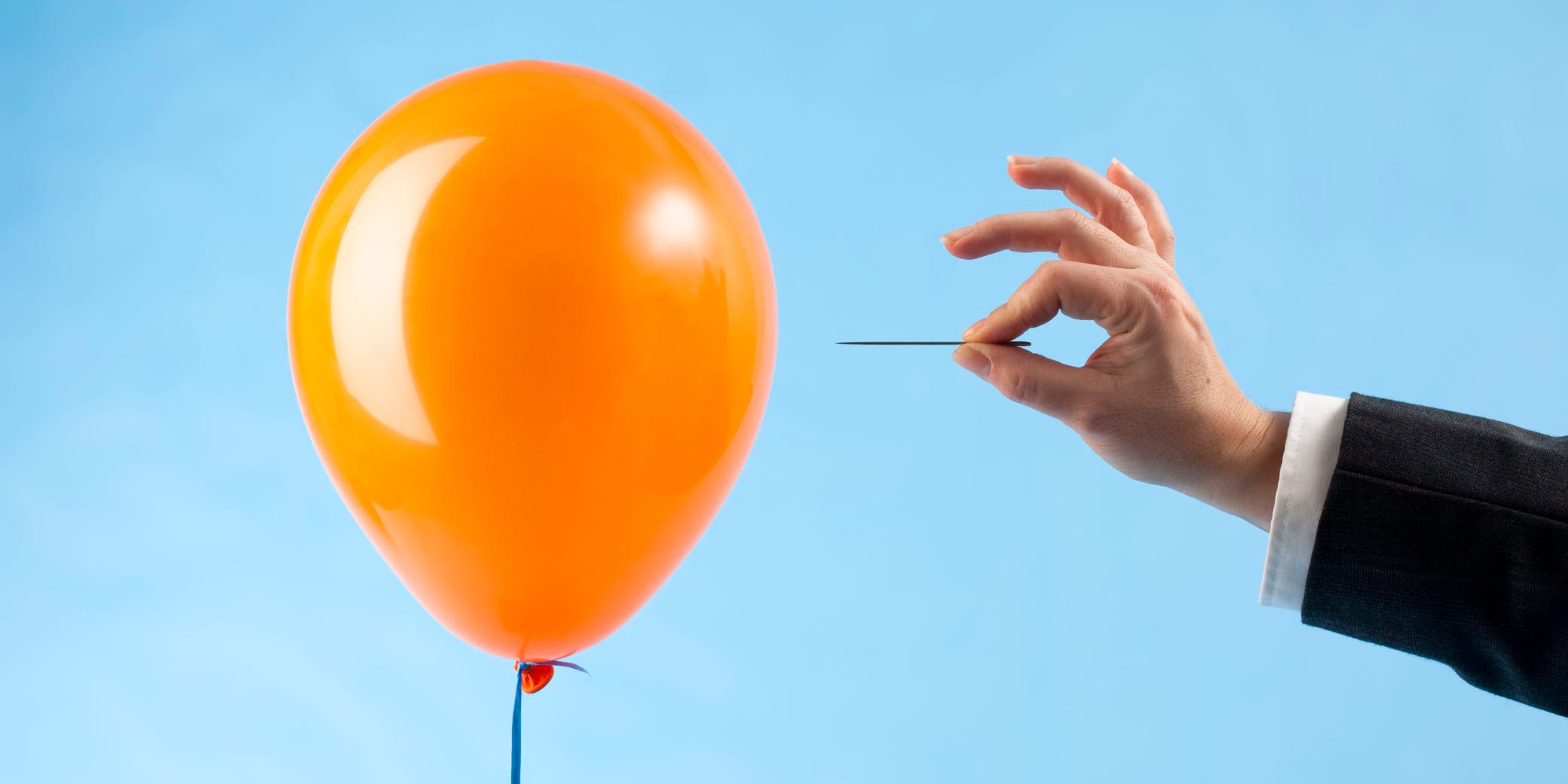
tisma/Getty Images
- You should try to avoid popping a blister, as it protects injured skin and will typically resolve on its own.
- However, you may want to pop a blister if it’s in a location where it’s likely to rupture on its own, or if it’s causing you pain.
- If you have to pop a blister, you must use a needle that has been sterilized, and follow certain safety precautions to reduce the risk of infection.
- This article was medically reviewed by Debra Jaliman, MD, a board-certified dermatologist with a private practice in New York City.
- Visit Insider’s Health Reference library for more advice.
Blisters are bubbles of fluid that appear on your skin. Though these fluid-filled sores may be tempting to pop, dermatologists usually advise against it. However, there are some special cases where popping a blister is warranted.
Here are the times when popping a blister is okay and how to pop a blister safely to avoid infection.
When to pop a blister
In general, dermatologists do not recommend popping blisters, since the blister acts as a bandage that protects the injured skin, says Cliff Perlis, MD, board-certified dermatologist at Keystone Dermatology Partners in Pennsylvania.
“With a blister, the body creates a sterile, warm, moist environment to promote healing,” says Perlis. “While popping a blister may be tempting, it’s best to try to avoid it. The fluid beneath the blister will reabsorb on its own naturally.”
In fact, a blister will usually resolve itself within a week, so it’s often best to wait for it to heal.
Daniel Bach, MD, a dermatologist at UCLA Health, says that while you should avoid popping blisters as a general rule, there a few instances where popping a blister may be warranted:
- Location: Bach says that if it's in a location where it is likely to rupture on its own from contact — like on feet, ankles, or hands — you may pop it.
- Pain: If it's causing you pain, popping it may help relieve the pain.
But depending on the cause of your blister, you may want to see a doctor before you pop it yourself. Usually, someone is able to identify the cause of their blister based on the location and time, such as if they remember burning themselves on a hot stove or recently wearing brand new shoes.
Blisters like these — caused by mild burns or from friction — will typically look like red spots with a bubble of skin. In this case, it is probably safe to pop your blister.
But, if your blisters are due to an infection, you should not pop them. Infected blisters will typically drain pus and the area around it will be red and warm to the touch. You might also have a fever.
If you aren't sure what caused your blister, and you think it might be caused by an infection, it's best to err on the side of caution and see a medical professional to determine the best next steps.
How to safely pop a blister
You should follow strict precautions to make sure you're being as safe and careful as you can be when popping a blister. Perlis recommends the following steps:
- Wash the affected area with soap and water.
- Disinfect the area with 70% or higher isopropyl alcohol. Allow the alcohol to dry as it kills bacteria on the skin.
- Ideally, use a needle that comes from a sterile package. If you don't have a sterile needle, you can place a sewing needle in boiling water for 30 minutes. Perlis says this will reduce the bacteria on the needle, but some spores and other possible infectious agents may still remain.
- Allow fluid to drain out, but avoid squeezing the blister. This can cause trauma to the wound and may introduce bacteria from your fingers into the wound.
- Cover the blister with an antibiotic ointment like polysporin or bacitracin and a band-aid. Change the band-aid once a day, or more frequently if there is significant drainage of fluid.
The bottom line
Dermatologists agree that you should generally avoid popping your blisters. Blisters are there for a reason — to protect your skin. So it's best to let them resolve on their own.
In fact, most of the time, popping a blister will only increases your risk of infection. If you really must pop your blister, be sure to follow the guided tips for popping in the safest way possible.
Related articles from Health Reference:
- Yes, birth control helps acne. Here are the best options.
- Pregnancy can cause acne but there are safe ways to treat it
- The best facial cleanser ingredients for each skin type, according to dermatologists
- These are the best, most effective ingredients you should look for in a moisturizer
- You're probably not washing your hands long enough, and it could be making you sick
